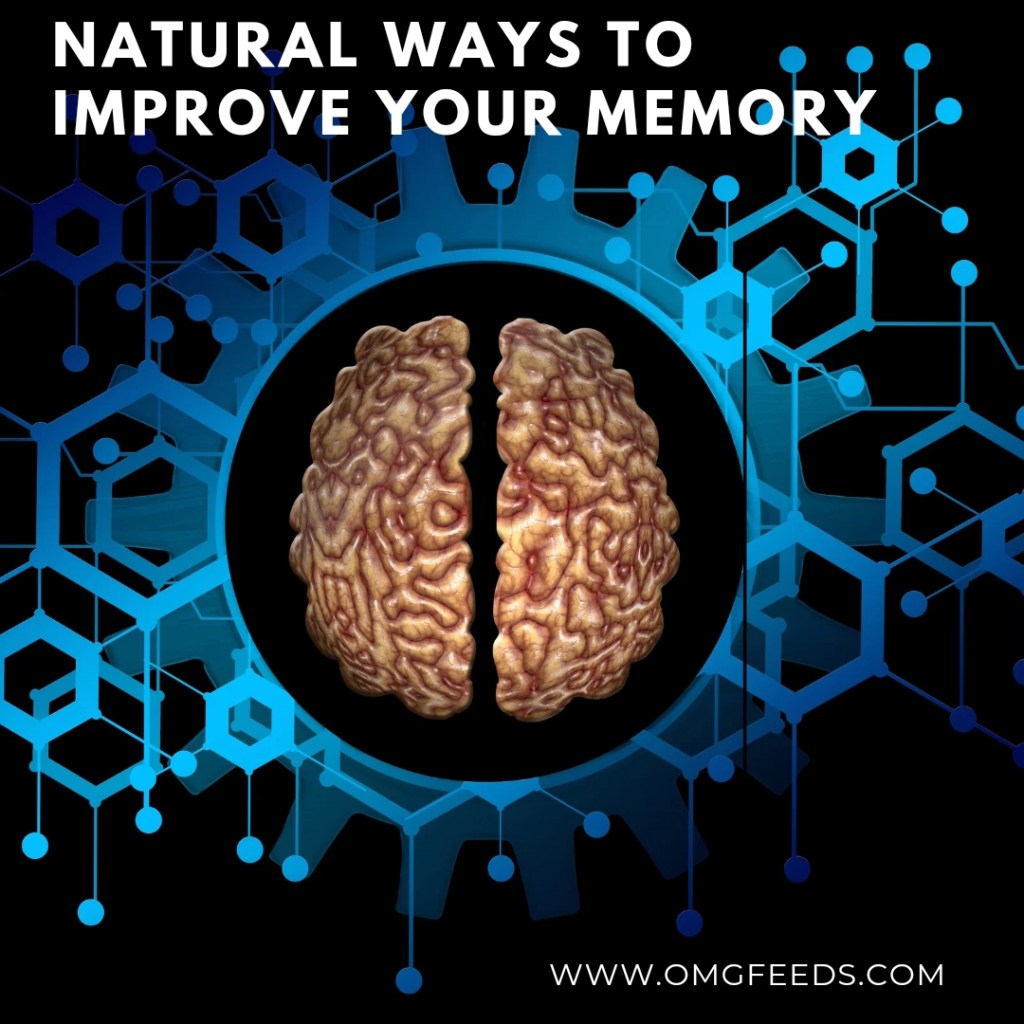Have you misplaced your car keys? Have you forgotten your shopping list? Can’t remember the name of your favourite personal trainer at the gym? You’re not by yourself. Everyone forgets things now and then. Memory loss, however, is not to be taken lightly. Here are Natural Ways to Improve Your Memory

Although there are no guarantees in preventing memory loss or dementia, certain activities may be beneficial. Consider these seven simple ways to improve your memory — and know when to seek memory assistance.
Natural Ways to Improve Your Memory
Make physical activity a part of your daily routine.
Physical activity improves blood flow throughout the body, including the brain. This may aid in memory retention.
The Department of Health and Human Services recommends at least 150 minutes per week of moderate aerobic activity, such as brisk walking, or 75 minutes per week of vigorous aerobic activity, such as jogging, for most healthy adults, preferably spread throughout the week. If you don’t have enough time for a full workout, take a few 10-minute walks throughout the day.

Maintain mental activity
Mentally stimulating activities, like physical activity, help keep your brain in shape — and may help keep memory loss at bay. Complete crossword puzzles. Bridge is a game. When driving, take alternate routes. Learn how to play an instrument. Participate in a local school or community organisation as a volunteer.
Engage in regular socialisation
Social interaction helps to prevent depression and stress, which can both contribute to memory loss. Look for ways to connect with loved ones, friends, and others, especially if you live alone.
Organize yourself
If your home is cluttered and your notes are disorganised, you are more likely to forget things. Make a special notebook, calendar, or electronic planner to record tasks, appointments, and other events.
You could even repeat each entry aloud as you jot it down to help it stick in your mind. Keep to-do lists up to date and check off items as they are completed. Make a spot for your wallet, keys, glasses, and other necessities.
Limit distractions and don’t try to do too much at once. If you concentrate on the information you want to remember, you’ll be more likely to remember it later. It may also be beneficial to relate what you’re trying to remember to a favourite song or another familiar concept.
Get enough sleep
Sleep plays an important role in consolidating memories so that you can recall them later. Make adequate sleep a priority. The average adult requires seven to nine hours of sleep per day.
Here are some pointers to help you get a better night’s sleep:
- Limit your screen time before going to sleep. The blue light emitted by your smartphone, tablet, laptop, and other screens instructs your brain to stop producing melatonin (a sleep hormone).
- Long naps should be avoided because they can disrupt your nighttime sleep cycle.
- Caffeine and alcohol, both of which can cause drowsiness, should be avoided.
- Make a sleep-inducing ritual for yourself, such as taking a bath, reading a book, or meditating.
Maintain a healthy diet
A healthy diet may be as beneficial to your brain as it is to your heart. Consume fruits and vegetables, as well as whole grains. Low-fat protein sources include fish, beans, and skinless poultry. What you drink is also important. Alcoholism can cause confusion and memory loss. Drug use can also be harmful.
Handle chronic illnesses
For medical conditions such as depression, high blood pressure, high cholesterol, diabetes, obesity, and hearing loss, follow your doctor’s treatment recommendations. The better you look after yourself, the better your memory will be. In addition, schedule regular medication reviews with your doctor. Various medications can have an impact on memory.
Exercise mindfulness
Mindfulness is a mental state in which you concentrate on your current situation while remaining aware of your surroundings and emotions.
Meditation incorporates mindfulness, but the two are not synonymous. Mindfulness is a mental habit that can be used in any situation, whereas meditation is a more formal practise.
Mindfulness has been shown in studies to be effective at reducing stress and improving concentration and memory.
One study of 293 psychology students found that those who received mindfulness training outperformed those who did not in terms of recognition-memory performance when recalling objects.
Mindfulness has also been linked to a lower risk of age-related cognitive decline as well as an improvement in overall psychological well-being.
Include mindfulness practises in your daily routine.

Consume alcohol in moderation.
Alcohol has neurotoxic effects on the brain, including memory impairment. Moderate drinking is usually harmless, but binge drinking can harm your hippocampus, a key area of your brain associated with memory.
Test your vitamin D levels.
Vitamin D deficiency is widespread, particularly in colder climates, and has been linked to age-related cognitive decline and dementia. If you suspect you have low vitamin D levels, consult your doctor and request a blood test.
Refined carbohydrates should be avoided.
Consuming a lot of refined carbohydrates, such as cakes, cereal, cookies, white rice, and white bread, can be bad for your memory.
These foods have a high glycemic index, which means that the body digests them quickly, resulting in a spike in blood sugar levels.
Select anti-inflammatory foods.
A diet high in anti-inflammatory foods may help you improve your memory.
Antioxidants aid in the reduction of inflammation in the body by lowering oxidative stress caused by free radicals. Antioxidants can be found in foods such as fruits, vegetables, and teas.
Include cocoa in your diet.
Cocoa is not only delicious but also nutritious, containing a high concentration of antioxidants known as flavonoids. According to research, flavonoids are especially beneficial to the brain.
They may help stimulate the growth of blood vessels and neurons, as well as increase blood flow in memory-related areas of the brain.
When should you seek memory loss treatment?
If you’re concerned about memory loss, especially if it interferes with your ability to complete your usual daily activities or if you notice your memory deteriorating, consult your doctor. He or she will most likely perform a physical exam as well as tests of your memory and problem-solving abilities.
Other tests may be required at times. Treatment will be determined by what is causing your memory loss.


